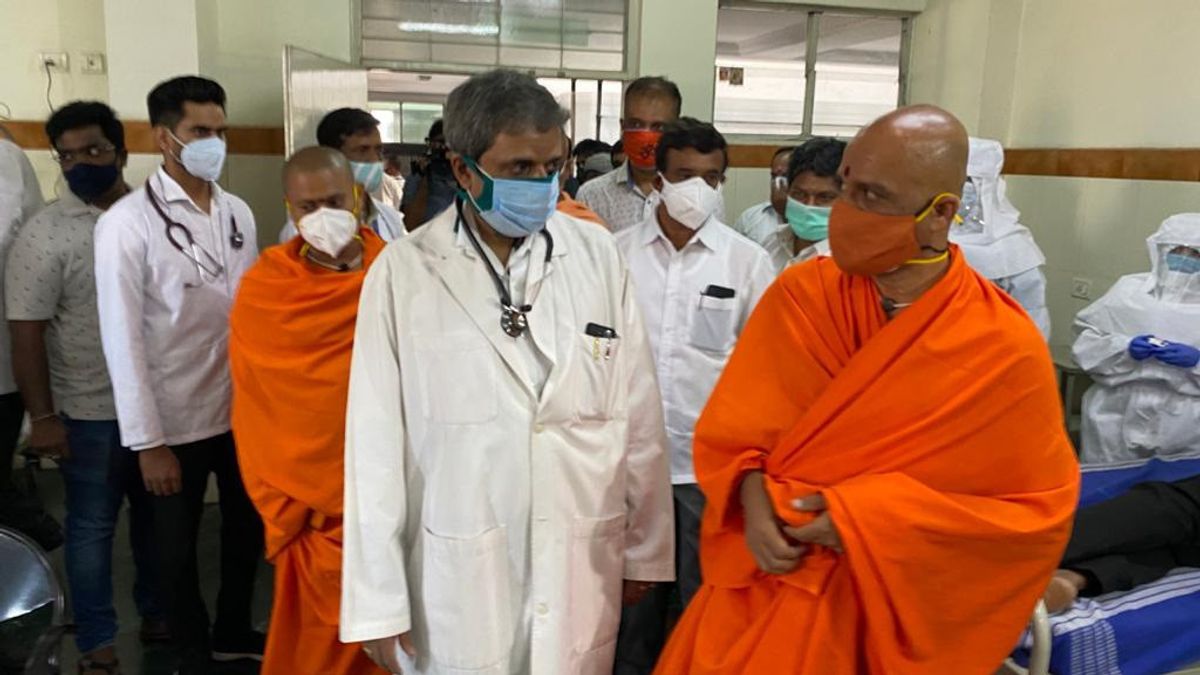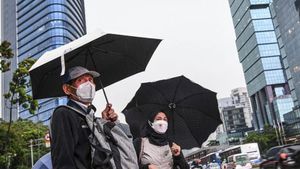
JAKARTA - The World Health Organization (WHO) is monitoring the spread of a new Omicron subvariant in India, as global infections rise by 30 percent in just two weeks, the global agency said.
The agency said it was too early to say what the impact of the new BA1.75 sublineation would be, which was detected in India and spread to at least 10 countries.
"It's too early to know whether this subvariant has additional immune evasion properties, or is indeed clinically severe. We don't know that. So we have to wait and see," said Soumya Swaminathan, chief scientist at WHO., reported The National News July 7th.
The WHO says Europe is the center of the current revival, with more than 80 percent of COVID-19 infections currently, as more people mix in large-scale events and travel.
WHO Director-General Dr. Tedros Adhanom Ghebreyesus said COVID-19 infections had risen 30 percent globally in the past two weeks, with the Omicron BA.4 and BA.5 subvariants pushing for an increase in Europe and the United States.
"Test has been drastically reduced in many countries. It obscures the true picture of the developing virus and the real burden of COVID-19 disease globally," he explained.
"New treatments, especially new promising oral antivirals, have yet to reach low- and middle-income countries, seizing the entire population that needs them," said Dr. Tedros.
Despite lower death rates than at the height of the pandemic, Dr Tedros warned, "every wave of the virus leaves more people with long-COVID or post-COVID (which) conditions clearly impacts on their individuals and families, but also places additional burdens on the health system, the wider economy and society in general."
Separately, WHO's Executive Director of the Health Emergency Program, Michael Ryan, said while Europe is at its center, the sublineation may be spreading elsewhere.
"We are seeing a much more intense wave of disease passing through Europe again, and we will see it happening elsewhere, we have seen it in Southeast Asia as well as in the eastern Mediterranean region," he said at a briefing on Wednesday.
It is known that a new wave of infections has not led to a spike in intensive care receipts or a serious increase in the number of deaths, as a result of vaccine protection.
The WHO says countries must ensure their 'walls of immunology' remain strong, provide booster injections needed for vulnerable individuals, maintain surveillance measures, introduce antiviruses and use preventive measures that have been attempted and tested to prevent transmission.
Dr Tedros said, while every revival in the case must be taken seriously, the world is in a better situation to fight the virus now than in 2020.
"We will not become virus hostages like we have in the last two years. We know the virus, we have better tools to fight it."
Last year, India became one of the epicenters of the spread of COVID-19, crippling the health system, with a spike in cases of infection due to the Delta variant starting in April 2021.
In May last year, India's daily infection cases recorded a record high, hitting 414,188 cases. Meanwhile, a record daily death was recorded in June last year, with 6,148 deaths a day.
The English, Chinese, Japanese, Arabic, and French versions are automatically generated by the AI. So there may still be inaccuracies in translating, please always see Indonesian as our main language. (system supported by DigitalSiber.id)












